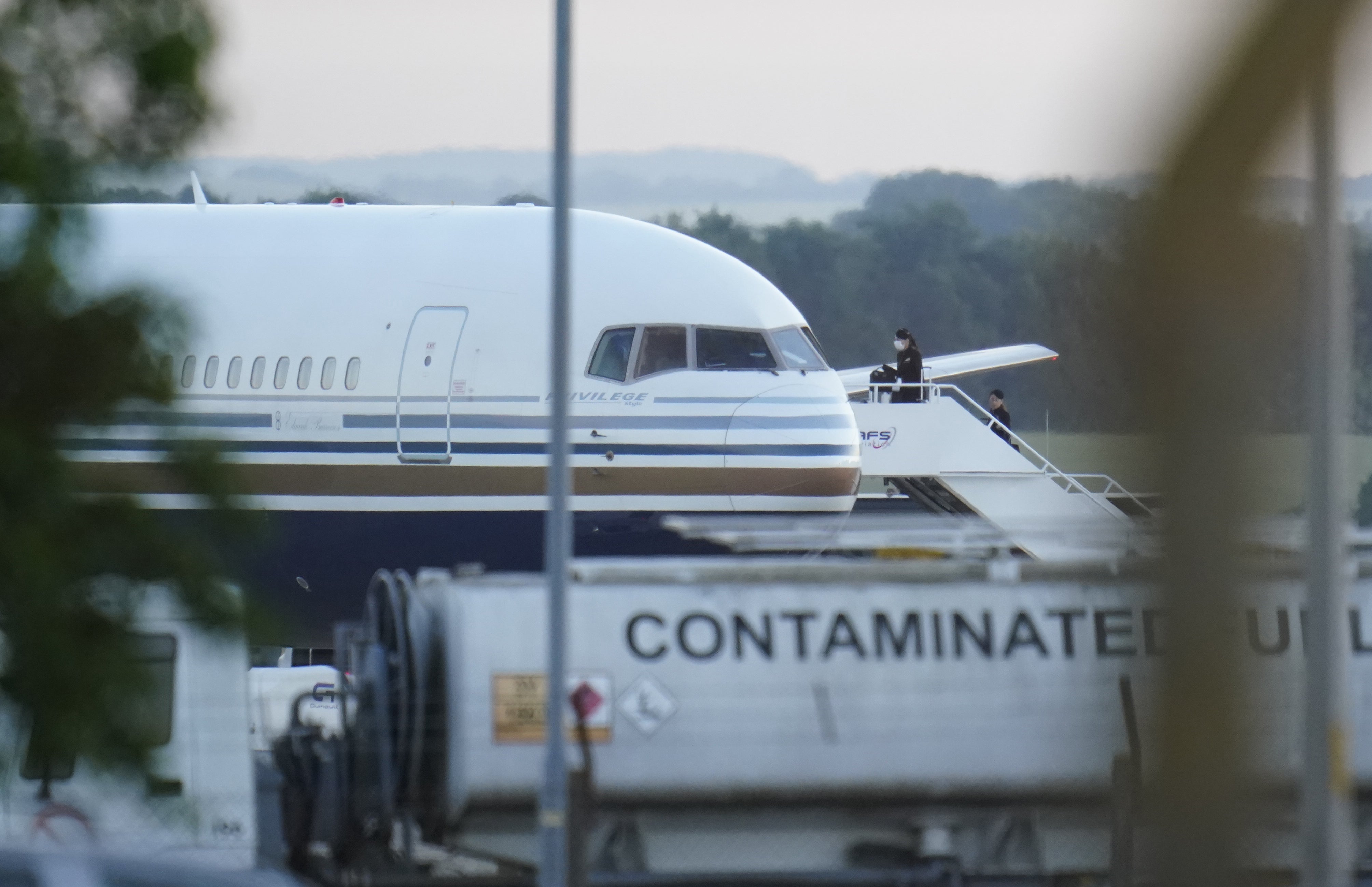Rwanda flights delayed until September amid wait for High Court hearing and new prime minister
High Court judges will consider legality of policy on the day results of Conservative leadership contest are announced

The government will not attempt another flight to Rwanda until September at the earliest, as it awaits a decisive court hearing and the result of the Conservative leadership contest.
The next prime minister will be announced on 5 September, the same date that the High Court will review whether the policy is legal.
A hearing, originally set for next Tuesday, was delayed at the request of the charities bringing the legal challenge, to give them extra time to prepare their case.
A Home Office source told The Independent no asylum seekers would be put on flights until September at the earliest because of the court case, denying reports that the delay was linked to the leadership election.
All leadership candidates running so far have committed to continuing the Rwanda policy, despite concerns over its legality and effectiveness after the Home Office’s chief civil servant refused to approve the plans.
They were forced through by Priti Patel, using a rare ministerial direction, following a letter from Matthew Rycroft warning: “Evidence of a deterrent effect is highly uncertain and cannot be quantified with sufficient certainty to provide me with the necessary level of assurance over value for money.”
The government refused to answer a Freedom of Information request on costs lodged by The Independent, on the basis it needed a “safe space” to negotiate bilateral agreements.
A plane intended to take the first group of asylum seekers to Kigali was grounded in June, after several passengers were granted last-minute injunctions by the European Court of Human Rights.
Care4Calais, which is one of three charities to tell the High Court the policy is unlawful, said it was working with more than 20 people who have been detained and issued with legal notices claiming they will be removed to Rwanda.
Founder Clare Moseley added: “Many of those from [the flight] last time remain detained, exhausted and alone, and terrified for what the future might bring.
“These people have suffered some of the very worst things that can happen on this planet. They have appalling physical and mental scars, and now face the threat of further extreme trauma.”
Detention Action, which is also part of the legal challenge, welcomed the news that a temporary pause had been put on flights.
The charity had urged the Home Office not to “defy the courts” by sending people to Rwanda in the knowledge that they may have to be brought back if it loses the case.
Whatever the High Court’s judgment in the judicial review, the losing side is expected to challenge the ruling in the Court of Appeal, and then potentially the Supreme Court and ECHR (ECHR) - continuing the case for months or possibly years.
The PCS union, which represents Border Force staff and is also part of the legal action, is calling for the government to halt all flights to Rwanda until the result of the case is known.
General secretary Mark Serwotka said: “We’re pleased the court has listened to our representations and granted the adjournment. This is a serious matter that has potentially grave consequences for all concerned. It, therefore, requires the most careful scrutiny.”
Ms Patel and other ministers have argued that the policy is necessary to reduce the number of small boat crossings over the English Channel.
Asylum seekers are being selected for removal to Rwanda after being declared “inadmissible” on the basis that they travelled through safe third countries.
The definition is based on the UK’s immigration rules, which were redrawn by the government last year, and has been criticised by the UN Refugee Agency (UNHCR), which said there is no requirement under the 1951 Refugee Convention to seek protection in the “first safe country”.
The UK was cut out of an EU-wide agreement to transfer asylum seekers to countries deemed responsible for them during Brexit, and has not replaced the deal, creating a huge backlog of asylum seekers who have been declared “inadmissible” but cannot be sent to European countries as they were before.
Home Office decision-making has also slowed down, leaving a record number of asylum seekers waiting for decisions on their claims.
More than 13,300 people have crossed the English Channel in small boats so far this year, more than double the total by the same point in 2021.
Last week, dozens of arrests were made in the biggest international police operation of its kind targeting a people-smuggling gang thought to have been responsible for around 10 per cent of all migrant crossings last year.
The National Crime Agency said the arrests, and seizure of inflatable boats and equipment had damaged smugglers’ capabilities and would put a “dent” in crossing numbers.
But an official warned that crossings would continue because of demand from migrants who have no safe or legal route to reach the UK from northern France.
A Home Office spokesperson said: “Our world-leading partnership with Rwanda is a key part of our strategy to overhaul the broken asylum system. We have been clear from the start that we expected legal challenges however we are determined to deliver this new partnership.
“This is vital to prevent loss of life in the Channel and break the business model of people smugglers. No court has actually ruled that this partnership is unlawful and we are ready to defend the partnership in the courts.”







Join our commenting forum
Join thought-provoking conversations, follow other Independent readers and see their replies
Comments